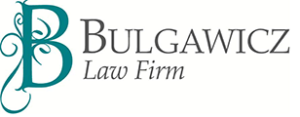Learn how a son helped his dad combat financial elder abuse and get back on track financially.
Keys takeaways
✔ Realize that your loved one is a potential target.
✔ Assign money management jobs to trusted family members.
✔ Involve multiple family members, to reduce the potential for a single point of failure.
✔ Keep up to date on local scams.
Last year, Mike Conner,* age 57, a chief marketing officer for a health care technology firm in Chicago, offered to help his 86-year-old father with taxes.
While visiting his father in Dallas, Conner had noticed that his father, a retired aerospace engineer, had letters on his desk from the Internal Revenue Service related to an unfiled 2014 tax return.
His father had an explanation. He was a widower who had remarried a year earlier, and the couple was splitting their time between his home in Dallas and her home outside Phoenix. “He was thrown by how to handle their new marital status and different state residencies, so he had simply done nothing,” says Conner.
Conner figured he would ask his own accountant to lend a hand, and that it would be a fairly straightforward task. It hasn’t been. As Conner and his father sorted through online documents (bank accounts, brokerage accounts, and credit card statements) to get the information needed to file Conner’s father’s past taxes, Conner made a startling discovery.
“Over the course of the previous 18 months, my father got suckered into signing up for 94 financial and investment newsletters from advisory services, totaling $56,000 in ‘subscription fees,’ which he paid for with his credit cards,” says Conner. “His retirement portfolio is worth around $500,000.”
Conner’s first reaction was “absolute outrage,” he says. “My dad always hated doing stupid things. I had to force myself to realize this wasn’t a matter of consciously doing something stupid.”
By all accounts, it’s a case of elder financial abuse. Although not outright theft, 51 of the newsletters that could be traced came from one financial firm and its seven sister companies. “I don’t think they broke laws,” says Conner. “If you met my dad today, you would say, boy, I hope I’m as sharp and on top of things as he is at that age, but, in fact, he has lost executive processing skills.”
Conner’s father’s financial chaos is one increasingly shared by adult children across the country. Helping older family members manage their money can be awkward, but it’s often inevitable.
Six in 10 older adults worry about having to burden their family with helping to manage the older adults’ finances, according to Fidelity research1, but 8 in 10 children actually want to be involved, says Suzanne Schmitt, vice president for family engagement at Fidelity Investments. Moreover, keeping mom and dad in their home and safe from fraud and elder abuse were adult children’s number one and two concerns, she says.
“Financial elder fraud can happen to anyone, and, in fact, folks who have a higher level of education and obtain more wealth are actually more vulnerable,” says Schmitt. “This is not something that just happens to people who don’t have trusted advisors in their lives. It happens to everyone, and the shame that people typically feel is universal.”
In retrospect, Conner grasps what happened. Part of it was his father’s romantic desire to show off to his new wife with vacations and dinners out. He was worried that he needed more income to do so and believed investing would bump up his bank account.
It was also his dad’s personality. “He is one of these very meticulous people who measures a dozen times before he cuts once,” says Conner. “When I was growing up, he always bought a lot of tools for house projects, but he had way more tools than accomplished projects. I think that’s why he became susceptible to all the financial tools salespeople who came down the pike.”
Conner didn’t want to embarrass his dad but asked him point-blank, “Are you acting on any of this advice?” The answer: “Well…I want to…” Conner took a breath and explained, as calmly as he could, “Dad, you are not going to begin trading options at age 85.”
While each of us will face a different scenario—and it might not be a parent but rather an aunt or uncle whose financial safety is at stake—there are 10 steps to take now before a crisis develops:
1. Begin the family conversation.
“It doesn’t have to be all about aging issues,” says E. Elizabeth Loewy, the former founding chief of the Elder Abuse Unit in the New York County District Attorney’s Office, and general counsel and senior vice president for industry relations at EverSafe, an online account monitoring service. “It is really about just talking. Start with your own situation. You might say, ‘I want an extra set of eyes on my financial accounts. Would you mind getting alerts if something happens? I can do the same for you.’ You make it a two-way street.”
“As hard as it is to talk about this, and we all know talking about money is not easy, it is much easier than not,” says Conner. “Would you rather talk about it when the money is gone? Or would you rather talk about it when there is still an opportunity to do something about it?”
It does require diplomacy. “I try to be gentle and kind in all this,” he says. “I never judge dad, ever. There were times, however, when I wanted to say, ‘Dad, what were you thinking?’ But you cannot do that. I need him to be a willing participant and not to fight us on this.”
Read Viewpoints: “The power of planning together”
2. Create a family financial management plan.
You’re not going to sit down “in one fell swoop and have a plan in place,” says Schmitt. “Start with the bare bones.” In case of emergency, who are your parents’ financial professionals and trusted advisors? You should have access to your parents’ lawyer, accountant, financial planner, and broker. Do you have contact information for a neighbor or someone who sees your parents regularly and whom you can reach out to for a gut check, if you have concerns? With financial fraud and abuse, often when someone is being solicited to purchase things, suddenly the UPS truck is regularly pulling up where it didn’t use to, or packages are piling up. These are visual cues that there is a change in behavior and that can indicate a problem.
3. Know what key documents have been completed.
Getting organized begins with knowing what has and hasn’t been done, says Schmitt. For instance, to plan for a time when someone might decline cognitively, a financial (durable) power of attorney (POA) should be granted to someone who is comfortable dealing with investing and other money matters. Conner’s father, for instance, gave POAs to both Conner and his sister.
Ask questions: Do you have a will? When did you create it? Is it still current? “Then build on that,” advises Schmitt. Do an inventory on insurance policies. “Lots of people buy policies that can sit for years and years and are easy enough to get forgotten,” she says. Ask whether your parents have designated beneficiaries on bank accounts, investment accounts, and insurance policies. Do they have a health care proxy? Living will? Where are all these documents stored?
Tip: Here’s a list of the important documents you will need: a will, a living will, separate durable POAs for health care and financial decision making, deeds, insurance policies, investment accounts, bank accounts, income statements, retirement accounts, all outstanding loan documents, and current bills. Read Viewpoints: “Five ways to protect what’s yours.”
4. Be alert to changes in financial accounts.
There is no flashing red light when someone starts to lose financial capability. “The heart of the matter is we should all be on the lookout and start to lay tracks to prevent it,” counsels Schmitt.
People are always surprised when it happens to someone in their family, says Loewy. Yet, according to the Senior Investor Protection Resource Center, one in five seniors (age 65 and older) have been victimized by financial fraud, and seniors lose at least $2.9 billion annually to financial exploitation. Interestingly, the Center reports that family members, friends, and caregivers commit more than half of the crimes. “Financial fraud usually happens over time, and so many bells should have gone off, but no one is paying attention,” Schmitt says.
Conner, for instance, was aware for about two and a half years that his father subscribed to a few investor newsletters, before Conner discovered the magnitude of the charges. It had started after his parents’ financial adviser of more than two decades retired. “Dad didn’t have much rapport with the younger associate now handling his account. Then a friend came along bragging about this great thing he was doing in his portfolio, and dad decided he could do better,” recalls Conner.
“He began talking with me about how he was thinking of buying individual stocks, so there were the beginnings of lines of communication between my dad and me. I should have asked more probing questions, but I was very busy with life and work. I was also running up against how far you push with a parent. I didn’t say ‘show me what you are doing’ or ‘knock it off.’”
Then, too, Conner and his two siblings always thought it was their father who was responsible for financial management in their family. After all, he paid the bills. But, in retrospect, they realize that it was their mother, who died five years ago, who played a very big governor role and had been his sounding board. “She would be the one to say ‘no we don’t need to do that,’” says Conner. “After she passed away, there wasn’t anyone to say ‘hey, honey, what are you working on there?’”
Conner was surprised to find that rather than become defensive about his financial folly, his father was relieved to have his son offer to help him fix things. “He told me he was glad I found this because he may have been spending some money unwisely,” recalls Conner. Conner’s father then proceeded to explain that he had just purchased a new vacuum cleaner for $2,700. A salesperson had called, and Conner’s father had invited him to the home for a demonstration. The fact is, the senior apartment complex where Conner’s father lives provides maid service, and he had purchased an expensive vacuum cleaner just a year ago. Luckily, Conner was able to return the second vacuum cleaner because it was covered under a three-day return policy.
Tip: Watch for warning signs: not knowing what bills have been paid, obvious spending habit fluctuation, bounced checks, and late payment charges on credit cards.
Elder-fraud tips from the Conner family:
- Hold family financial meetings on a regular basis.
- Have someone in the family create a “personal balance sheet” to keep track of income and expenses.
- Establish power of attorney on key accounts.
- Watch for signs of aging, dementia, and a loss of executive processing.
- Set up a system to pay all bills electronically and automatically.
- Cancel unused or extra credit cards.
- Don’t be afraid to say no to or hang up on unsolicited phone offers.
- Opt out of solicitations.
- Monitor credit reports.
5. Simplify finances.
Two months after Conner discovered his father’s charges, his stepmother moved to Conner’s father’s home. The siblings used the move as a new beginning for their dad.
They cleaned house financially. He had six credit cards, and Conner’s sister whittled those down to one debit card connected to his credit union and two credit cards. She also reviewed expenses, put her father on a budget, and set up automatic bill paying and direct deposit into a checking account for any income. Conner’s stepmother’s daughter had already taken over financial management of her mother’s affairs, paying the bills and giving her mother an allowance.
6. Keep up to date on local scams.
Educate your parents about the scam du jour. A good way to do that is to sign up for AARP’s free Fraud Watch , to stay plugged in to what may be happening in the area of the country where your parents live. In fact, this could be a good tactical way to start a conversation: Just ask, “Have you heard about the latest scam?”
Remind them regularly to never reply to any request by email, regular mail, or phone for personal information such as a Social Security or credit card number, or to pitches to purchase a product or investment that they didn’t request. “Older adults are often too polite to hang up on a scammer, or to close the door on someone coming to their home,” explains Schmitt.
It’s not always an outright scam, as in the case of Conner’s father’s newsletters. “It’s not necessarily that the caller or emailer has a bad intent,” says Schmitt. But it’s over and above what someone in their mid-80s needs or would consume—things like a multiyear ticket subscription to a symphony orchestra concert series or three pairs of $350 silk pants are just not needed or prudent. Conner’s sister, for instance, now on credit card–review duty, recently flagged a $1,000 donation to the local public broadcasting station pledged by phone. The lure: a complete video set of the entire Downton Abbey series.
One way to slow things down is to eliminate as many calls and as much junk mail as possible. Consider signing your parents up for the . The Data & Marketing Association’s (DMA’s) (MPS) lets you opt out of receiving unsolicited commercial mail from many national companies for five years.
7. Maintain a social connection.
Isolation is a trigger for financial problems. “It creates a vulnerability for an older adult where a fraudster can step in and take advantage of that emotional gap,” says Schmitt. “Families are dispersed across the country, but understanding who your loved ones are interacting with is important.” Her advice: If you don’t live nearby, stay connected frequently by phone and electronically by email or social media. Listen carefully to whom they chat about in these conversations.
8. Assign money management jobs.
Money management can be handled in a divide-and-conquer strategy, advises Schmitt. In Conner’s family, for example, because his sister lives near their father, she has taken on the duties of monitoring credit card accounts, bill paying, and checking credit reports regularly. His stepmother’s daughter checks the couples’ bank accounts and debit card use daily.
Conner has a handle on his father’s investment accounts. Because his father still likes the idea of buying and selling stocks, Conner uses an online meeting website so they can each meet online virtually and do small trades together. Conner also set his father up with a Mint.com account, so Conner can check his father’s brokerage account balances, but it’s not transactional. “That would be too tempting,” he says.
In addition, Conner is doggedly working to get some of his father’s money for the newsletter subscriptions refunded. So far, he has recouped $26,000.
9. Monitor accounts.
There are a few handy technological tools for fighting fraud. These are “virtual safety nets,” says Schmitt. One layer of protection to consider is FidSafe®, a free, secure online safe deposit box, to save digital backups of electronically scanned essential documents such as bank and investment account statements, birth certificates, insurance policies, passwords, tax records, wills, and more.
sends suspicious activity alerts, including warnings for unusual withdrawals, missing deposits, odd charges, changes in spending patterns, and much more. “We know folks have multiple relationships,” says Schmitt. “If you can centralize this view, it makes it simpler for everyone.”
You might pick three or four people to get alerts. “With both of these services, the people who are allowed access to the financial documents can be friends, a family lawyer, or biological family members. If privacy is a stumbling block, the service can be set up in a way where you don’t have to reveal amounts you hold in accounts. Monthly fees range from $7.49 for up to five financial accounts to $22.99 for unlimited accounts and monthly credit reports. (Fidelity customers receive a discount.)
Conner set up a FidSafe box for his father. “Dad’s bank, credit card, and investment account numbers, and the passwords, and his renter’s and automobile insurance policy and long-term care policy are stored there,” he says. In addition to his father and his stepmother, Conner, his sister, and his stepmother’s daughter have access to the virtual vault.
10. Schedule family financial meetings.
When it comes to preventing elder financial abuse, regular family conversations about your parents’ fiscal world is crucial. Keep the family conversation going, not just after a financial event or a health event,” says Schmitt. Make it a regularly arranged call, even if it’s once a month.
Immediately after the discovery of the newsletter subscriptions, Conner, his sister, his stepmother’s daughter, and his father talked weekly, but then the phone calls slacked off. “We haven’t done as much as we should,” admits Conner. “At first, we were right on top of it, but the follow-through takes a lot of work. It’s so easy to get caught up in one’s own life.”
More recently, though, Conner’s sister discovered on a review of her father’s credit report that he had opened a new credit card without telling them. The siblings quickly started biweekly conference calls. “We’re encouraging our stepmother to be part of the conversation, too,” says Conner. “Because she is living with him now, she is truly our eyes and ears on the ground.”
Original Article found at: https://www.fidelity.com/viewpoints/wealth-management/elder-fraud?ccsource=email_weekly




